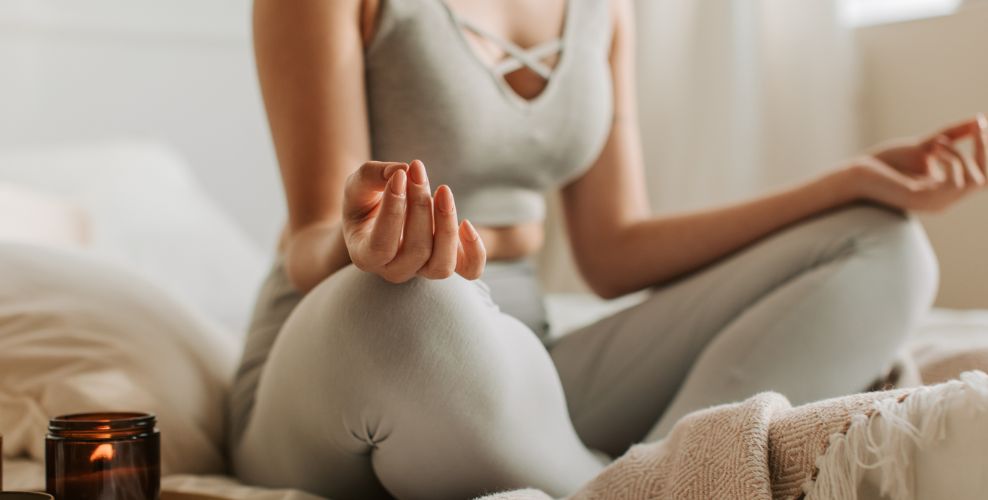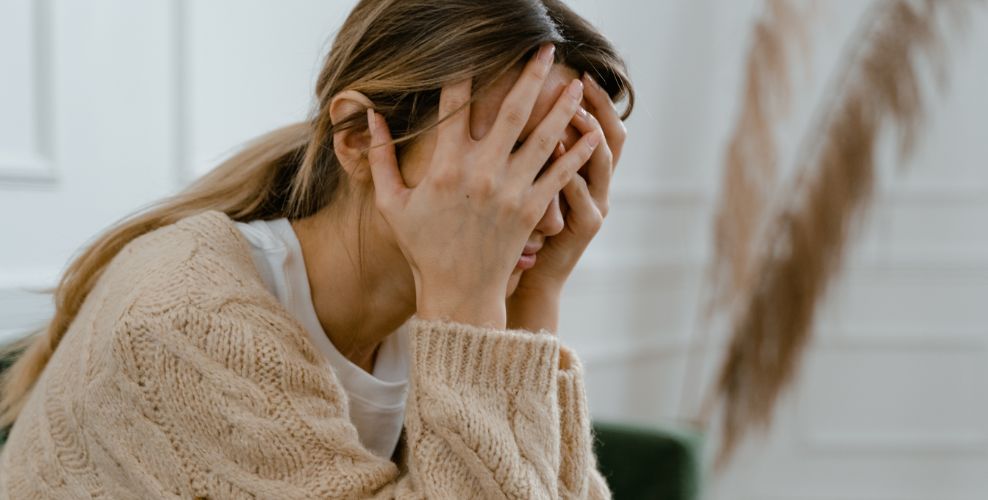Mindfulness and meditation - great therapy for mild anxiety
We’ve been talking about the benefits of meditation and mindfulness for a long time here at Fusion, but a new study released in November has found that an 8-week mindfulness meditation course had comparable effectiveness with traditional treatments for people experiencing mild anxiety.
New to mindfulness? Learn the basics here: Say hi to calm - mindfulness for beginners.

Anxiety statistics – the current state of our anxious minds
Anxiety disorders are the most common type of mental health condition globally and are currently estimated to affect approximately 301 million people.[1]
Australian statistics released in 2022 show that anxiety disorders are also the most prevalent type of mental health condition here, with one in six - equivalent to 16.8% of the population, or 3.3 million individual Aussies experiencing anxiety. [2]
There are effective treatments for mild anxiety disorders out there which include conventional treatment and cognitive behavioural therapy, but unfortunately, these aren’t accessible to everyone, not everyone responds to these treatments in the same way, and many people aren’t comfortable seeking care in a psychiatric setting. This has driven many researchers to look for additional treatment options for mild anxiety sufferers that are easy to access, effective and widely accepted. [1]
New research: Mindfulness and meditation compared to conventional treatment
A new study, published in November 2022 found that an 8-week mindfulness program had comparable effectiveness with traditional treatments for people experiencing mild anxiety.
The study was conducted on a group of 208 people who had been diagnosed with generalised anxiety disorder, social anxiety disorder, panic disorder, or agoraphobia for eight weeks.
The group was split into two, with half participating in a mindfulness-based stress reduction course (MBSR), and the other receiving conventional treatment.
The severity of all the participants’ anxiety was measured on a scale at the beginning of the trial, and again at weeks 2, 4, 6 and 8. The researchers also followed up with the study subjects after the trial finished, 3 months and 6 months after the trial began.
At the end of the 8-week study, the anxiety levels in both groups had decreased by 30%, and they continued to decrease after the 8-week study had finished.
The results show that a mindfulness and meditation course is effective and comparable in its benefits to conventional treatment for mild anxiety. Additionally, the mindfulness and meditation course was found to be safe and well-tolerated with fewer side effects than the conventional treatment. [1]

What makes up the mindfulness-based stress reduction course (MBSR)?
A mindfulness-based stress reduction course (MBSR) like the one used in this study is a specific mindfulness and meditation course developed by Jon Kabat-Zinn that runs for 8 weeks and includes:
A weekly 2.5-hour long class
A day-long retreat weekend class (during the fifth or sixth week) and
45-minute daily home practice meditations and mindfulness exercises
During the weekly classes, participants are taught the theory and practice of several forms of mindfulness and meditation, such as:
Breath awareness – which involves focusing attention on the breath and other physical sensations
Body scan – where participants focus their attention on one body part at a time and observe how that body part feels, and
Mindful movement - stretching and movements designed to bring awareness to the body. [1]
How does it work?
Mindfulness and meditation try to focus the mind on the present moment and let thoughts pass by without judging them. These techniques also help people recognise that thoughts and sensations are only temporary experiences we create in our minds and that they may not necessarily be accurate reflections of reality. [1,3]
This ability to focus on the present moment openly and without judgement can reduce the effects of stressors. MBSR also helps people respond to stressful situations differently and teaches new strategies to deal with unwanted internal experiences.[4]
Mindfulness and meditation also help to reduce repetitive negative thought patterns that are often characteristic of anxiety and increases self-acceptance and self-compassion. [1]
References:
- Hoge EA, et al. Mindfulness-Based Stress Reduction vs Escitalopram for the Treatment of Adults With Anxiety Disorders: A Randomized Clinical Trial. JAMA Psychiatry. 2022 Nov 9: e223679.
- AIHW - National Study of Mental Health and Wellbeing. Australian Bureau of Statistics. 2022. https://www.abs.gov.au/statistics/health/mental-health/national-study-mental-health-and-wellbeing/latest-release
- Hoge EA, et al. Randomized controlled trial of mindfulness meditation for generalized anxiety disorder: effects on anxiety and stress reactivity. J Clin Psychiatry. 2013; 74(8): 786-92.
- Hofmann SG, et al. The effect of mindfulness-based therapy on anxiety and depression: A meta-analytic review. J Consult Clin Psychol. 2010; 78(2): 169-83.
















